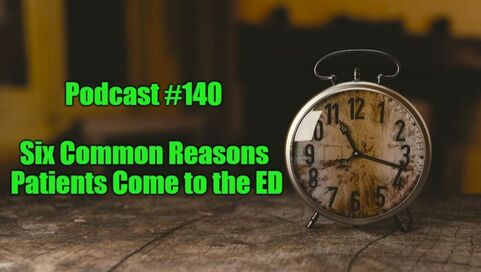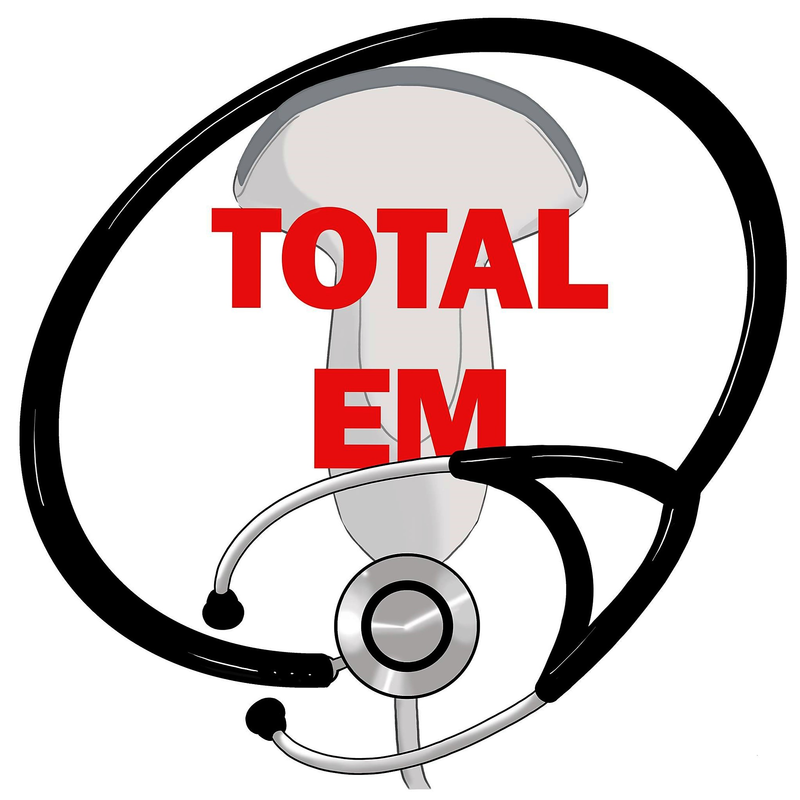|
Sometimes, especially during a long shift, we want to ask our patients why they thought they needed to come see us suddenly for a complaint that does not seem emergent. It can be challenging to remember that our patients seek our help for a variety of reasons.
This post primarily reflects from a paper in 2017 which discussed six of the most common reasons outside of true emergencies that patients seek emergent care. It is meant to help be a friendly reminder that we must look beyond our own bias and remember that there is another human being in front of us that wants our help.
Confidence in Primary Care and Access to Appointments Even when patients had access to primary care they chose to seek urgent or emergent care often without contacting their PCP first. Anticipated wait times at PCP's office, PCP office hours, inability of PCP to meet their needs, dissatisfaction with PCP, or lack of a PCP were all key factors. Some special populations, such as migrant workers, are more likely to not have a PCP and seek care at an emergency department for nonurgent health problems. Perceived Urgency Anxiety and the Value of Reassurance From Emergency‐based Services Patient anxiety often has a strong relation with healthcare seeking behavior. Furthermore, these patients are specifically looking for reassurance from emergency services. Some were uncertain as to the validity of their concerns and specifically seek our guidance to see if their fears are legitimate. Patients often felt they had more confidence in the care they receive at the ED for possible urgent issues than with their PCP. Perceived Need for EMS or Hospital Care, Treatment, or Investigations In addition to the above, some patients believe that they needed emergent care that their PCP would be unable to provide such as particular diagnostic studies or x-rays. Some believed they were too sick to be seen by their PCP while others felt their condition was too difficult or complex for the PCP to effectively manage. One study found that almost a quarter of patients with non-urgent complaints felt that they needed to be admitted to the hospital. Being Advised to Attend ED by Family Friends or Healthcare Professionals The views of family, friends, and healthcare professionals can be key influence in deciding about what care to seek. In some cases, over half of the patients that come to the ED do so based on the recommendations of other individuals. Over a third of patients in one study report coming after being told to do so by another healthcare professional. Convenience in Terms of Location, Not Having to Make Appointment, and Opening Hours The perceived convenience of emergency services as a key driver in patient decision making, and this is also linked to negative views around inconvenient access to primary care. PCP hours are often viewed as limited due to the structured nature versus the 24‐hour availability of the ED and not having to make an appointment. In one study, 60% of patients viewed the ED as more convenient than their PCP and other studies reported that people chose to visit the ED for low‐urgency problems due to the ED being closer, faster, more accessible, and having more convenient service. Conversely, another study reported that patients attended the ED with primary care problems even though few of these patients believed that they would be seen more quickly or that it was more convenient. Individual Patient Factors (e.g., Costs and Transport) This broad category is one that plays on many common issues. Patients often consider the costs of access to receiving care. Non-mandatory payment in the ED versus required payment before being seen in other settings such as their PCP allowed those with less money to seek immediate care (even if they have difficulty later paying). Some patients used the ED because an ambulance was their only means to be seen by a healthcare professional. Some may be willing to wait such as older people or those in rural areas that would rather wait at night until the next day in an attempt to see their PCP. Overall, we must remember that patients make decisions for a variety of reasons and we should try to understand that what may not seem emergent to us could be far more significant for them. Rather than be judgmental we should attempt to ask our patients in a non-biased fashion what brought them in. For example, in a pleasant tone we could ask, "What changed to bring you in tonight?" There are many ways to frame our conversation but the key is to be open and not judge our patients. Let us know what you think by giving us feedback here in the comments section or contacting us on Twitter or Facebook. Remember to look us up on Libsyn and on iTunes. If you have any questions you can also comment below, email at [email protected], or send a message from the page. We hope to talk to everyone again soon. Until then, continue to provide total care everywhere.
0 Comments
Leave a Reply. |
Libsyn and iTunesWe are now on Libsyn and iTunes for your listening pleasure! Archives
August 2022
Categories |
||||||


 RSS Feed
RSS Feed